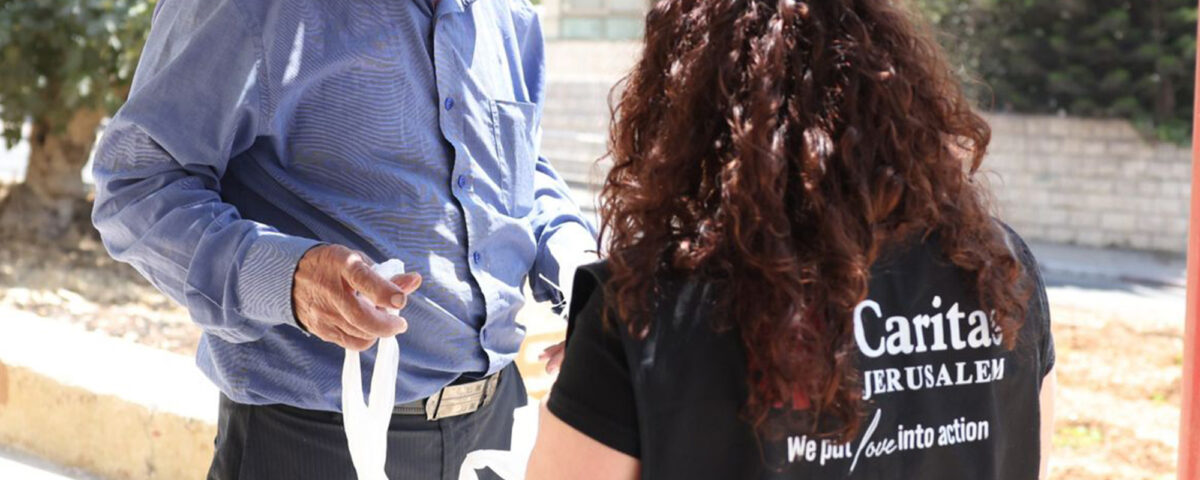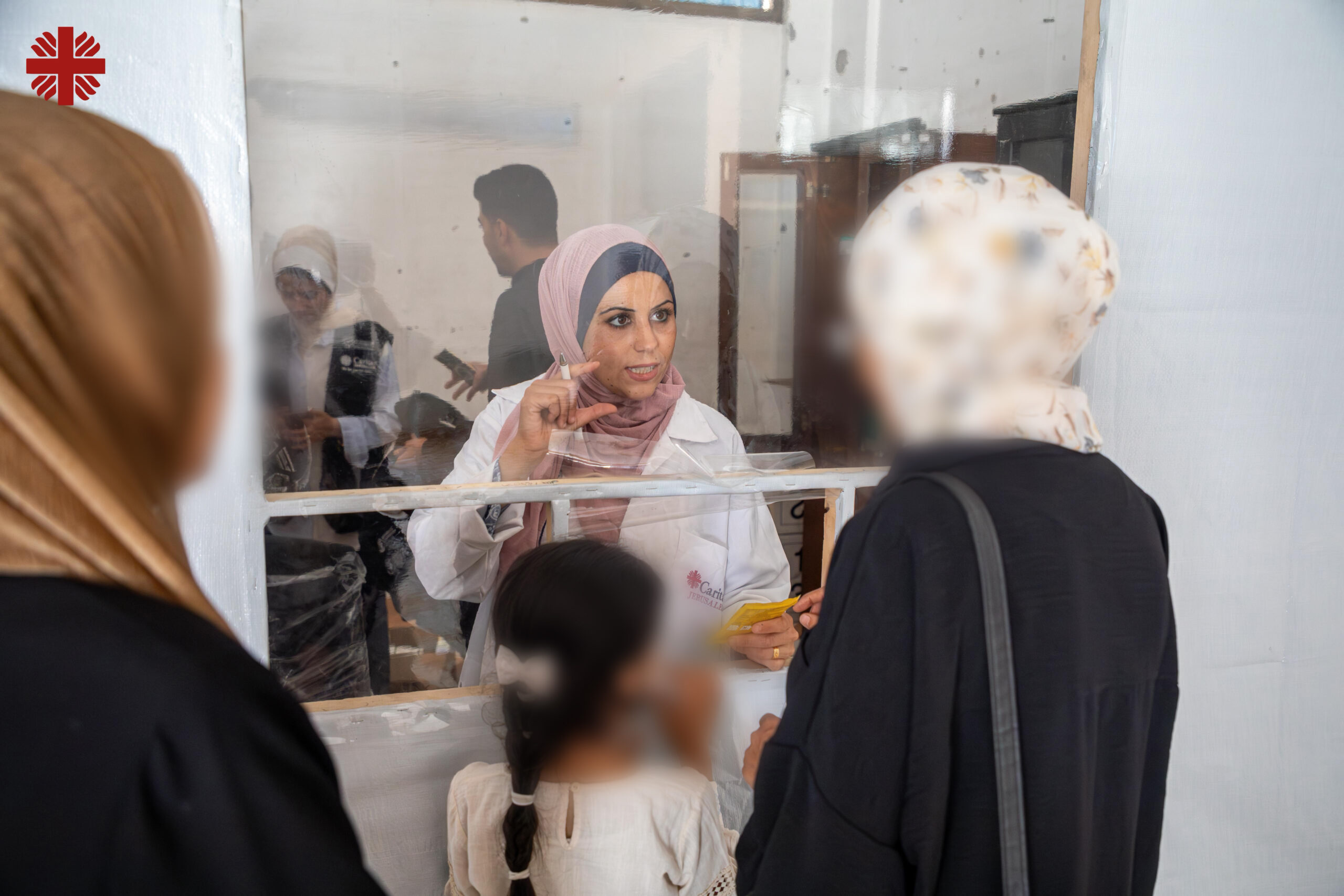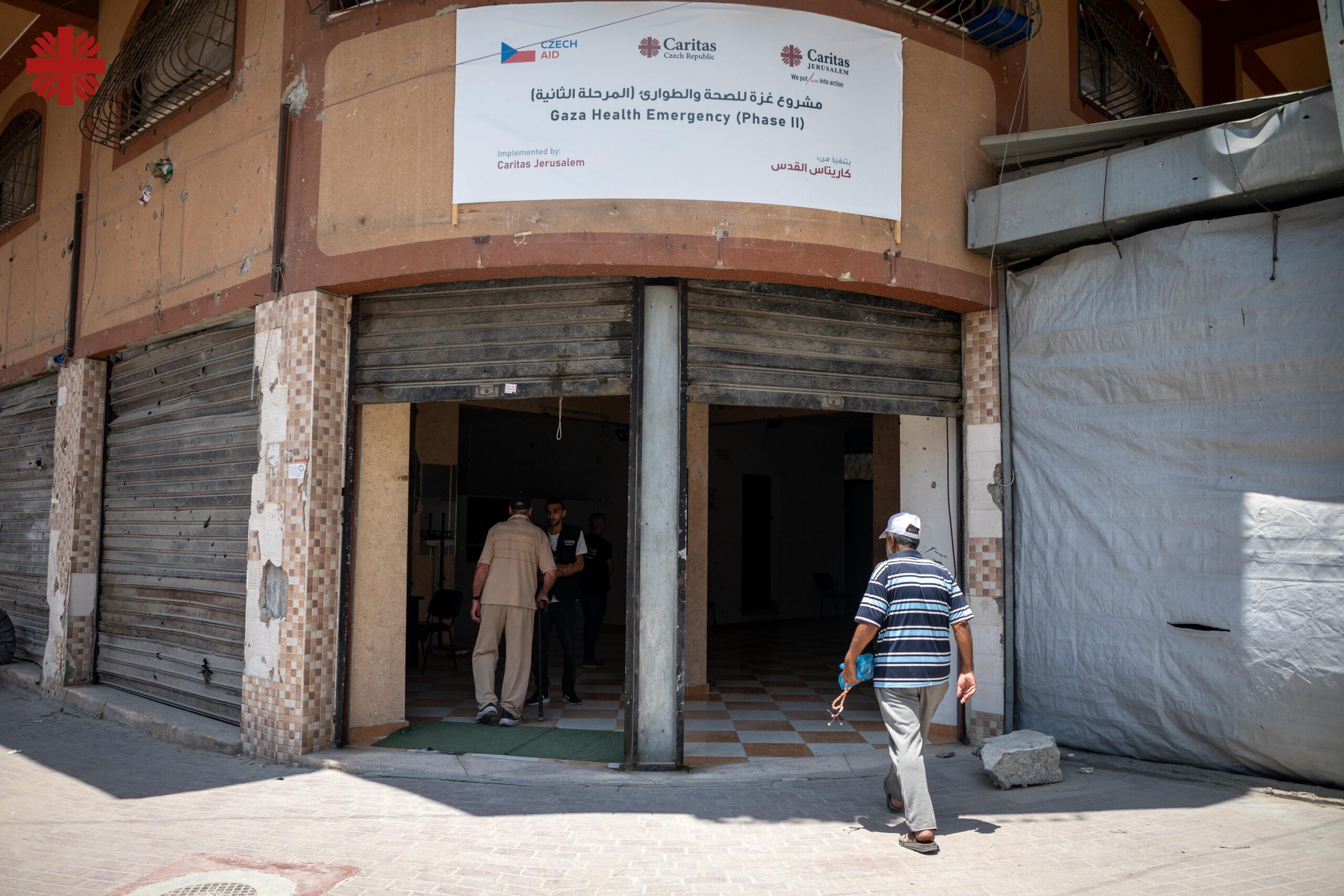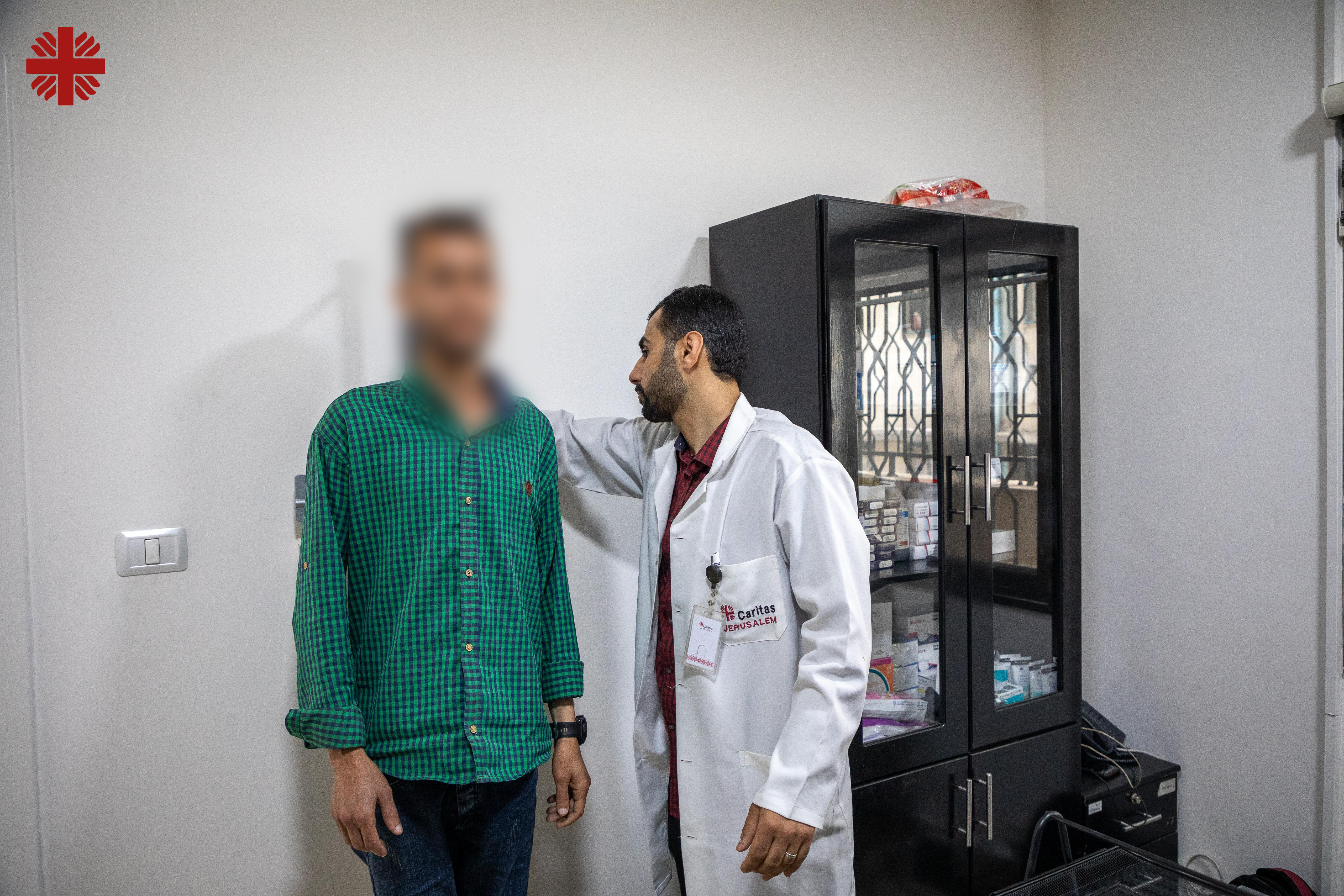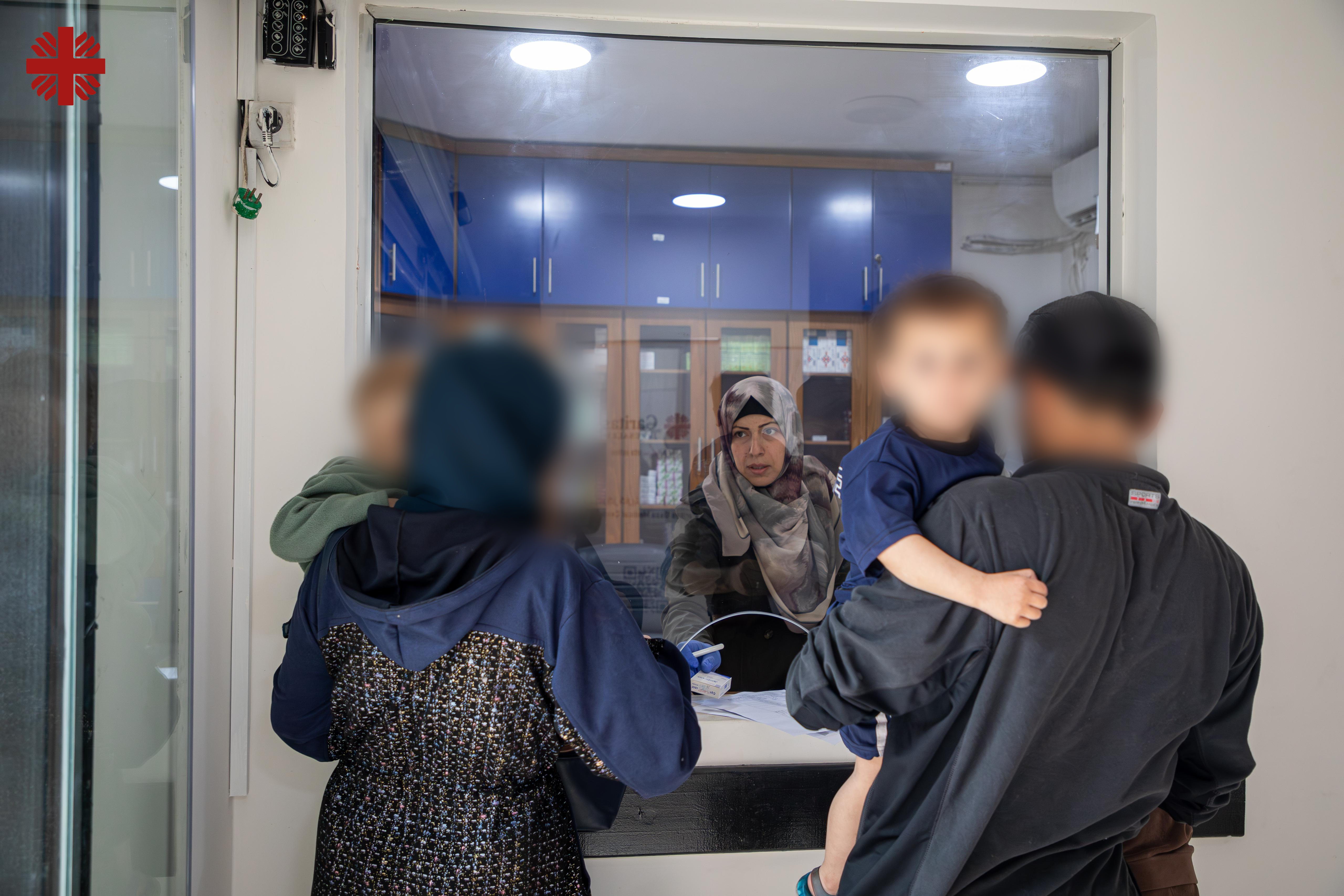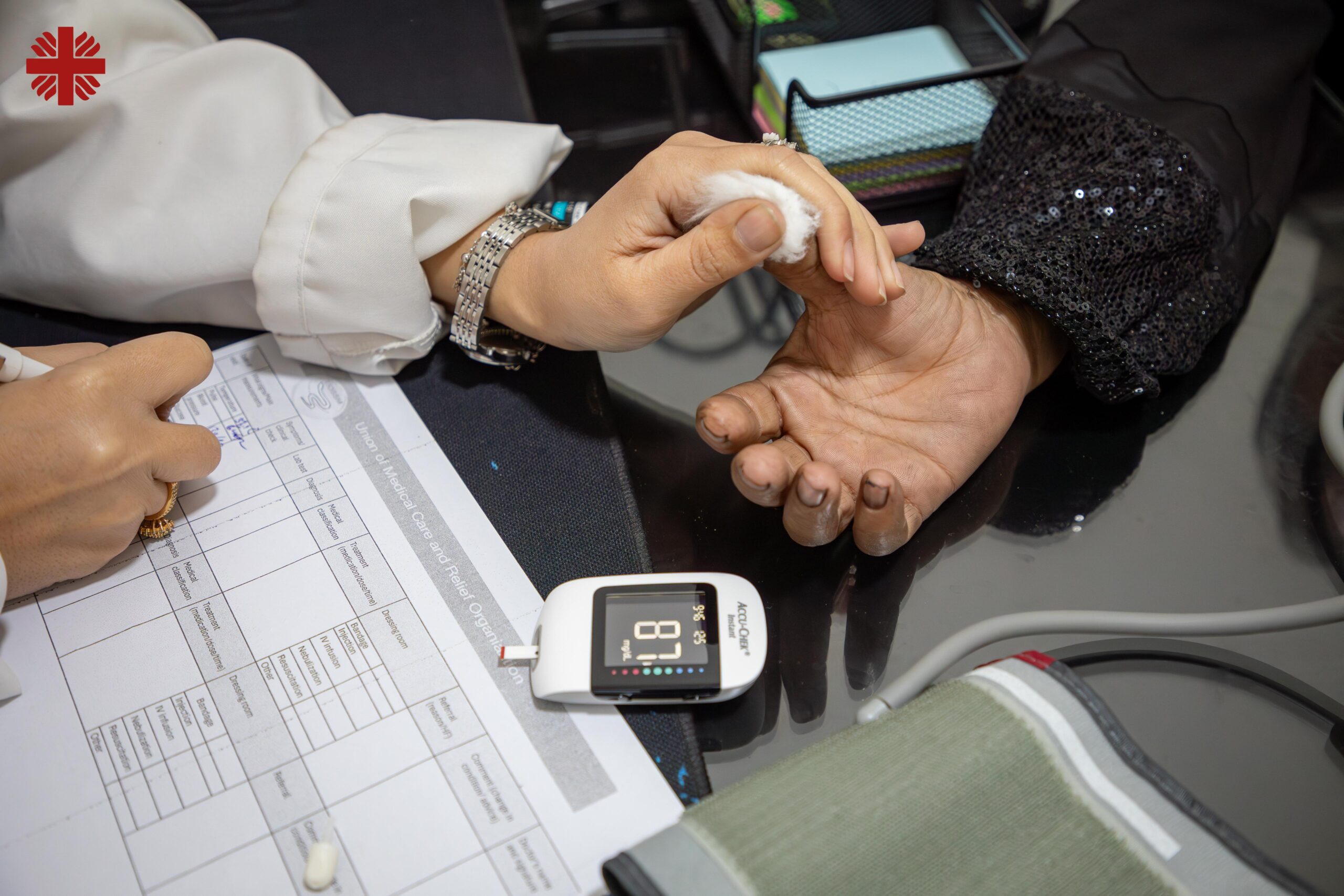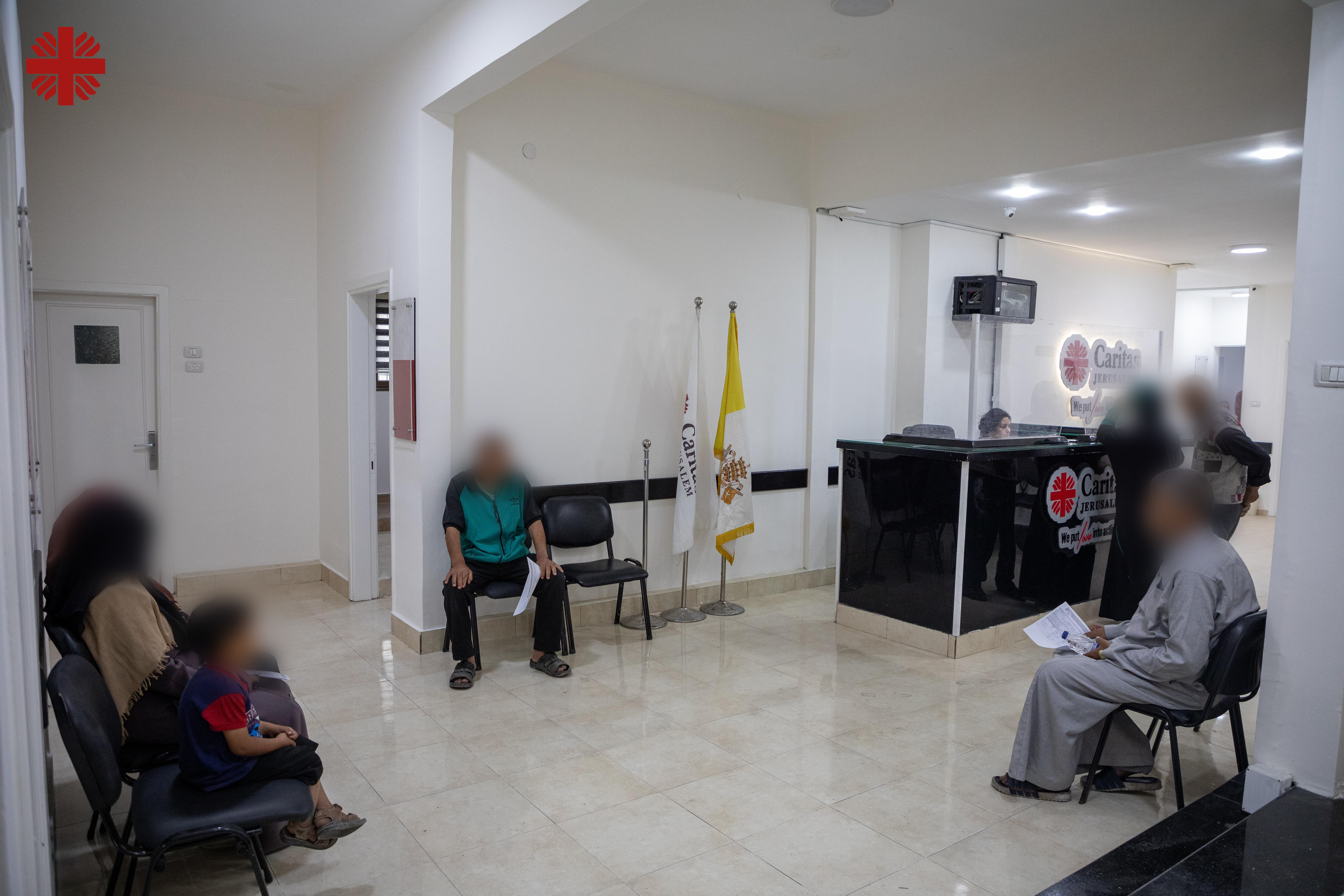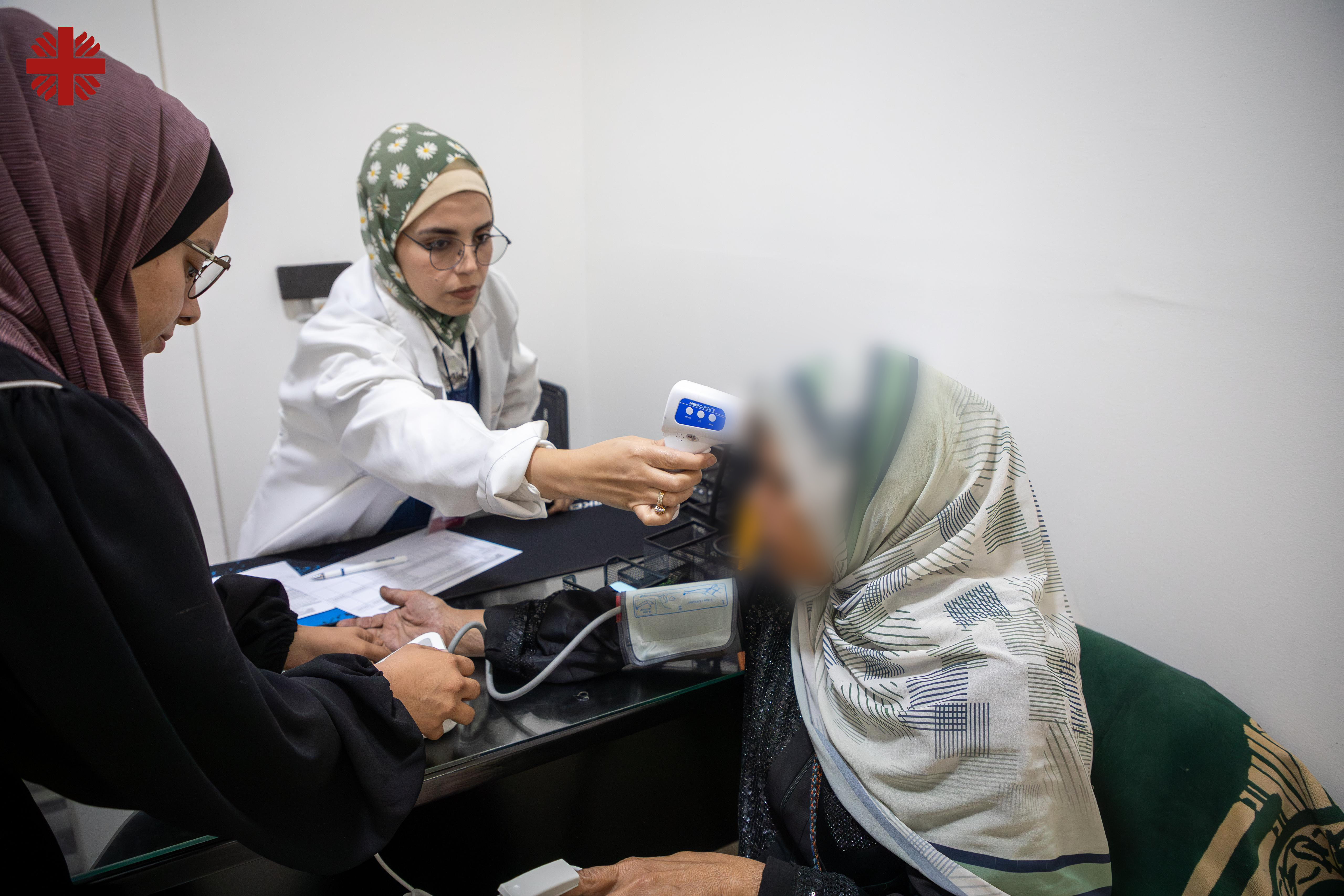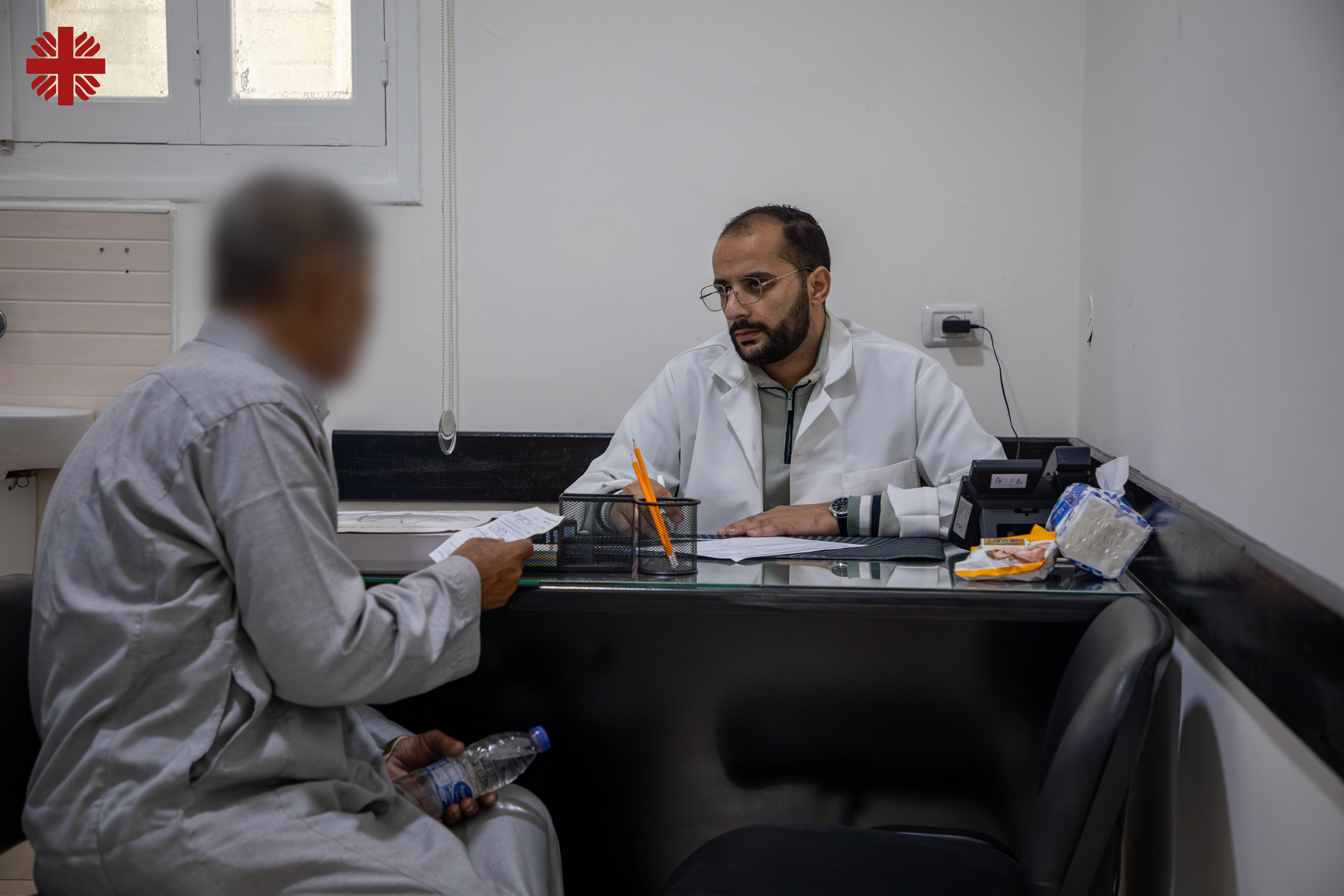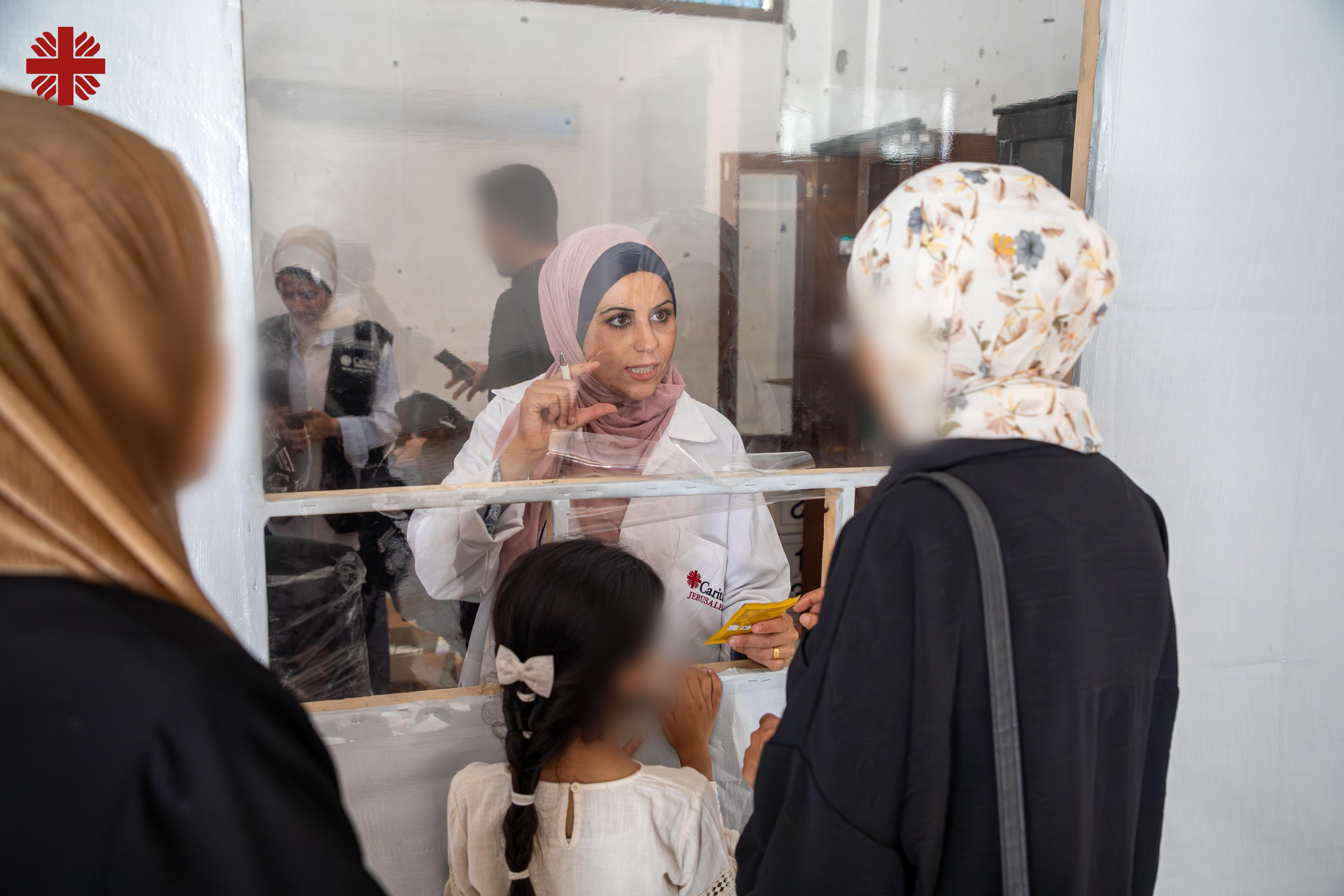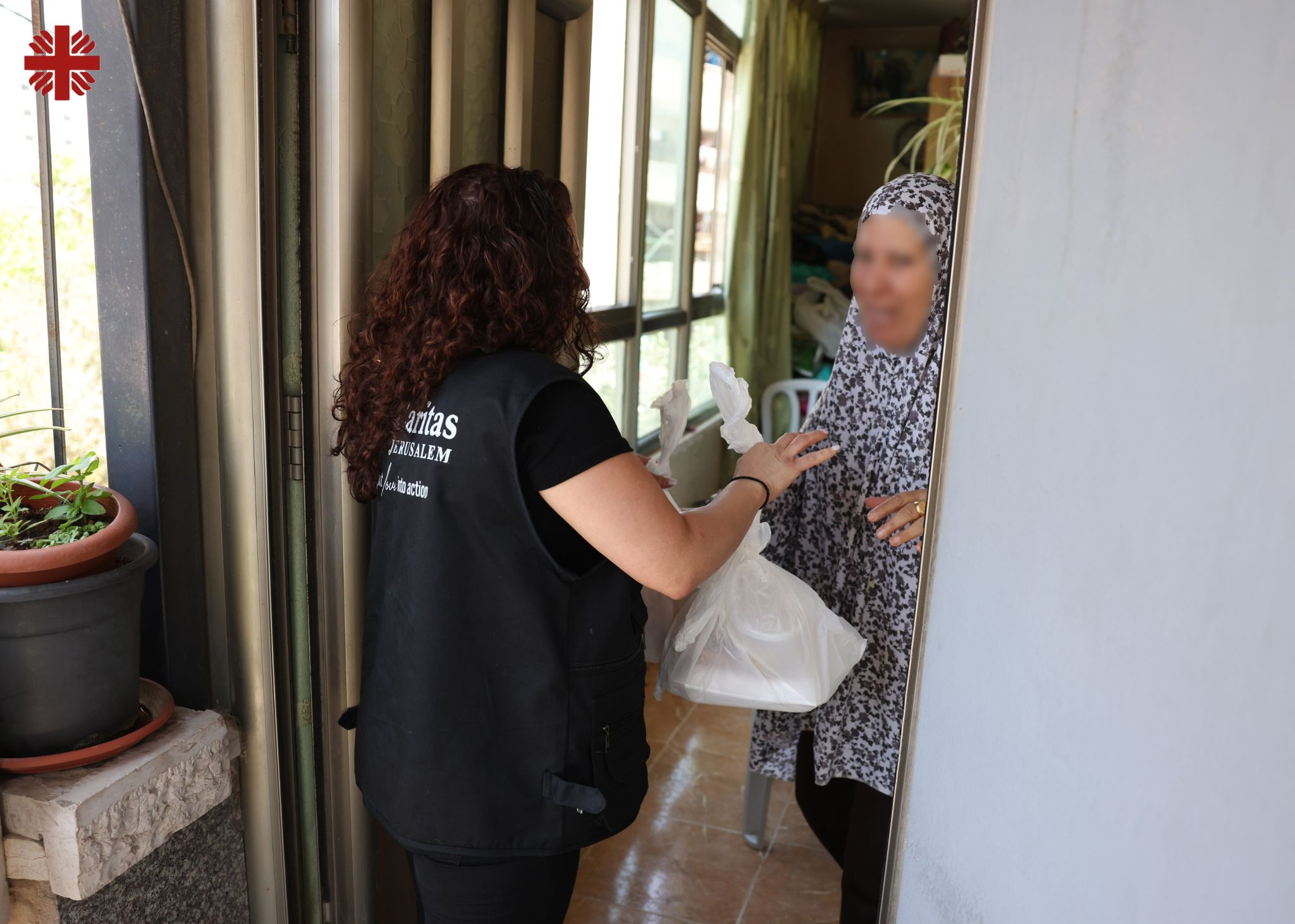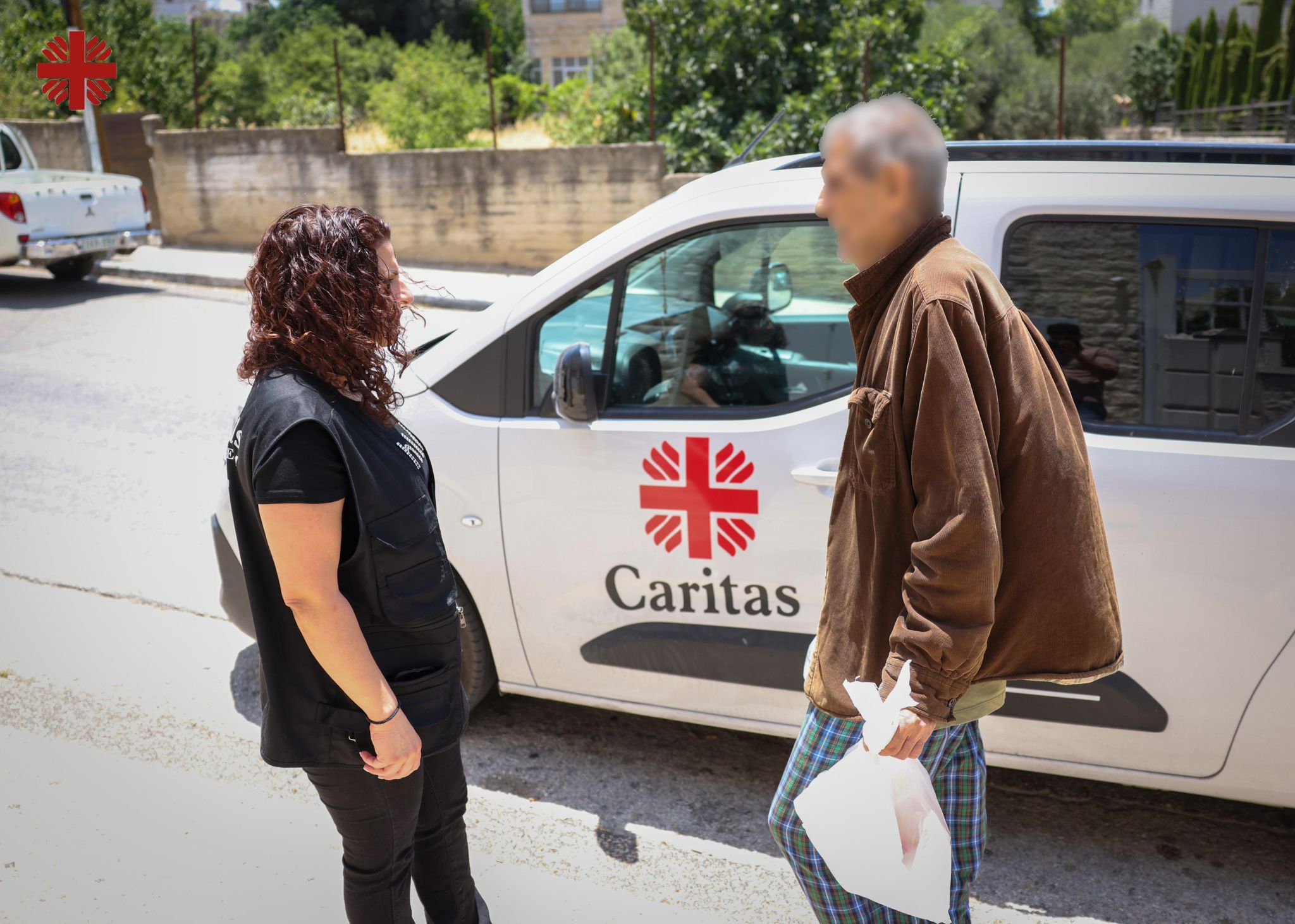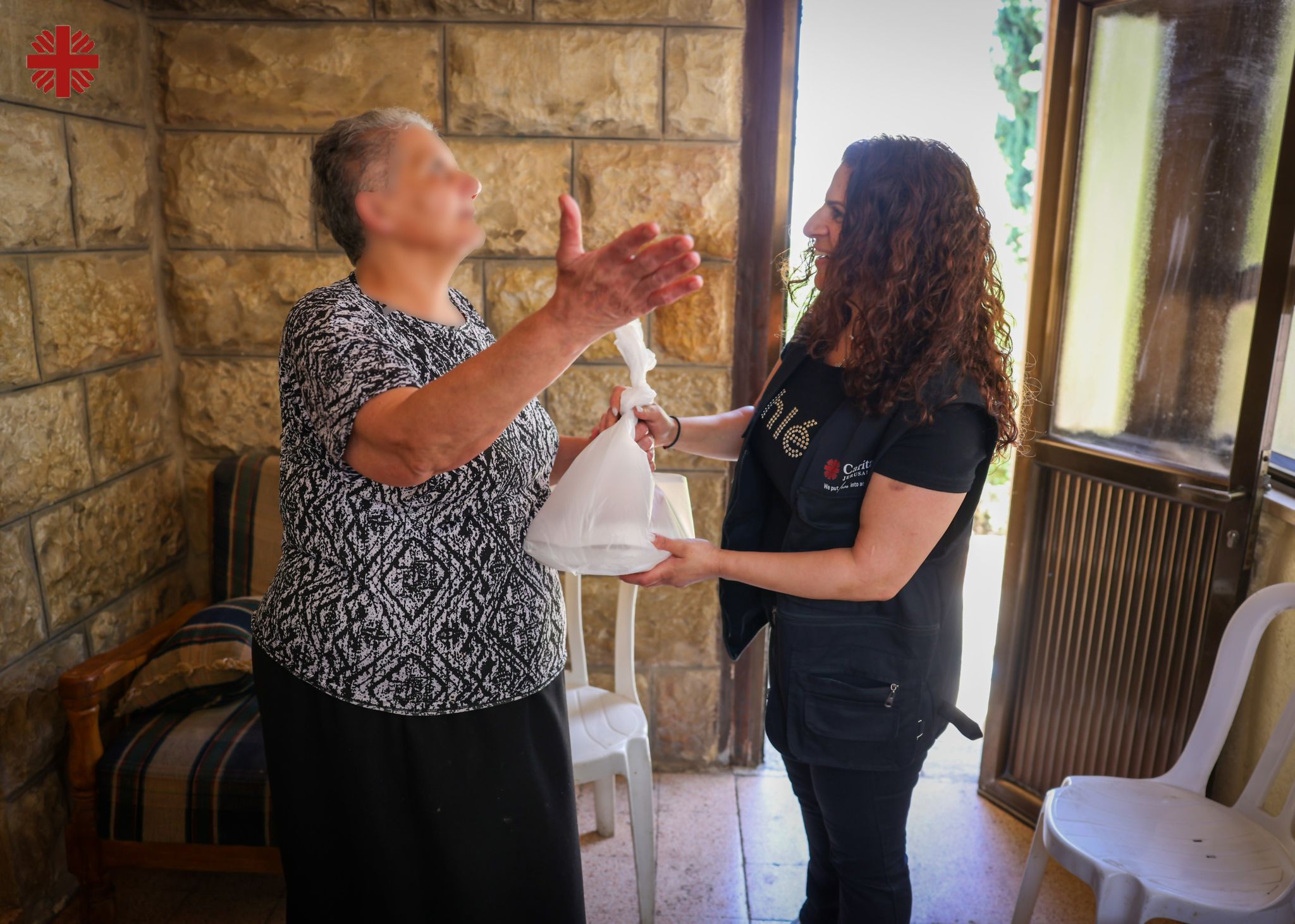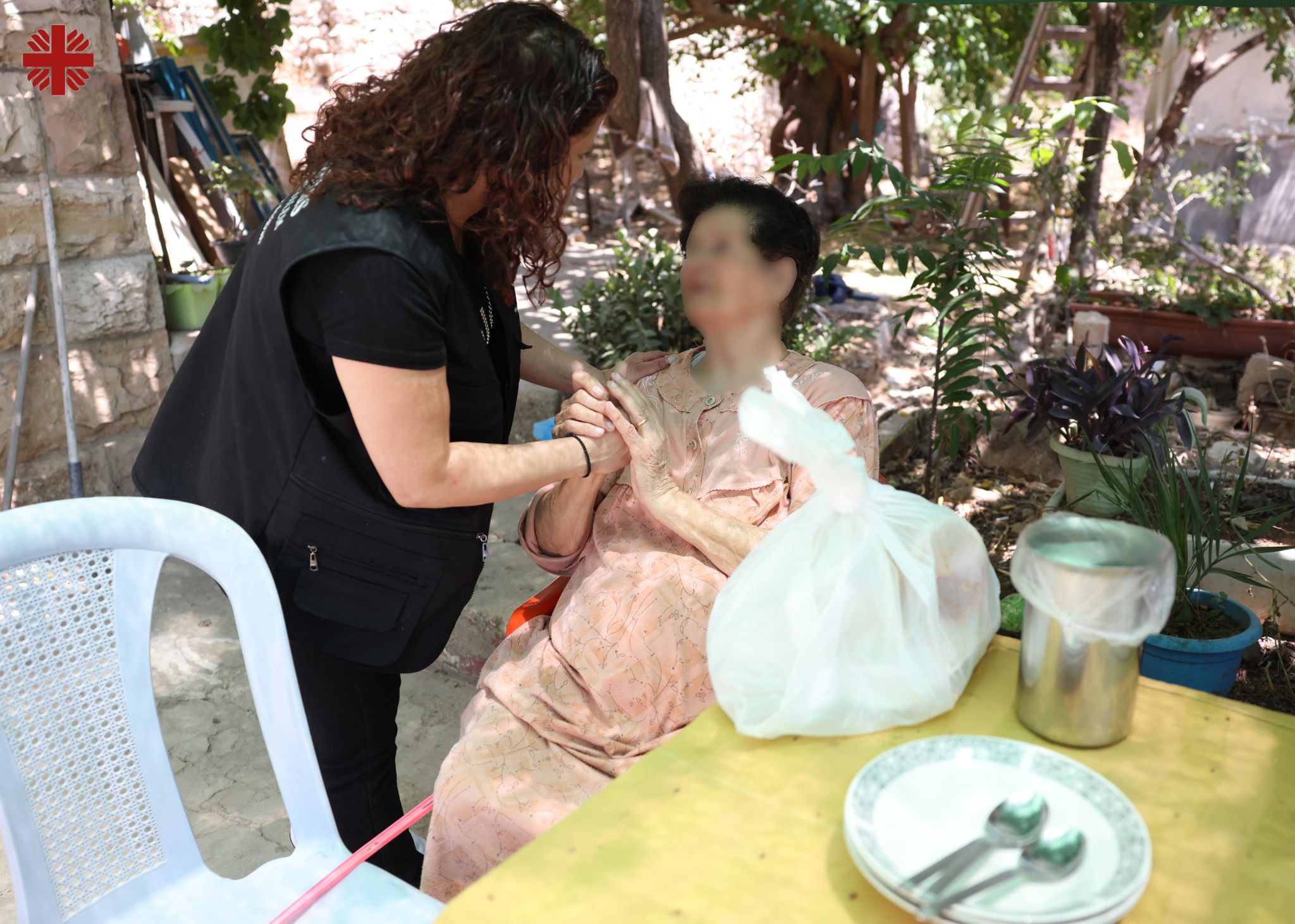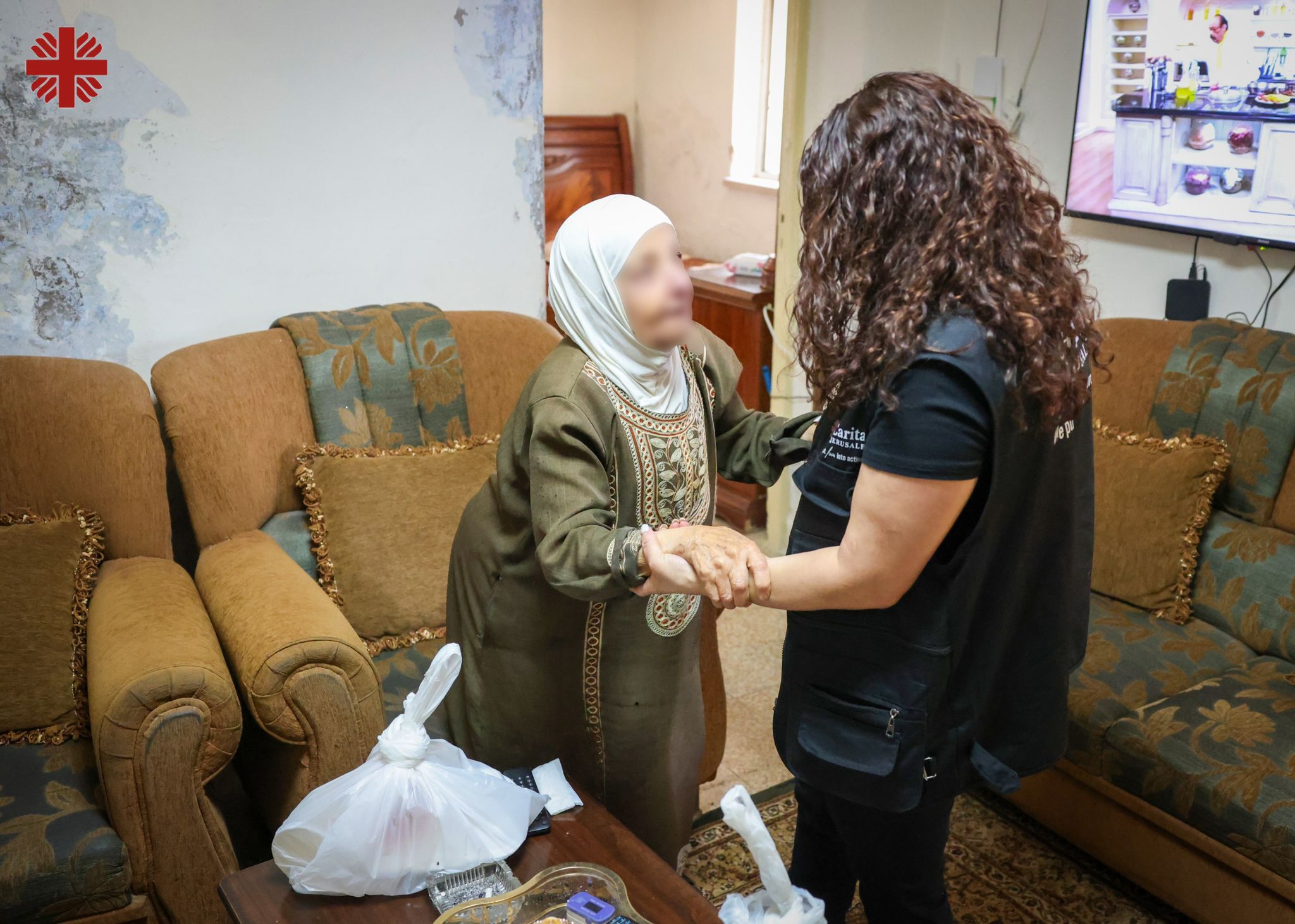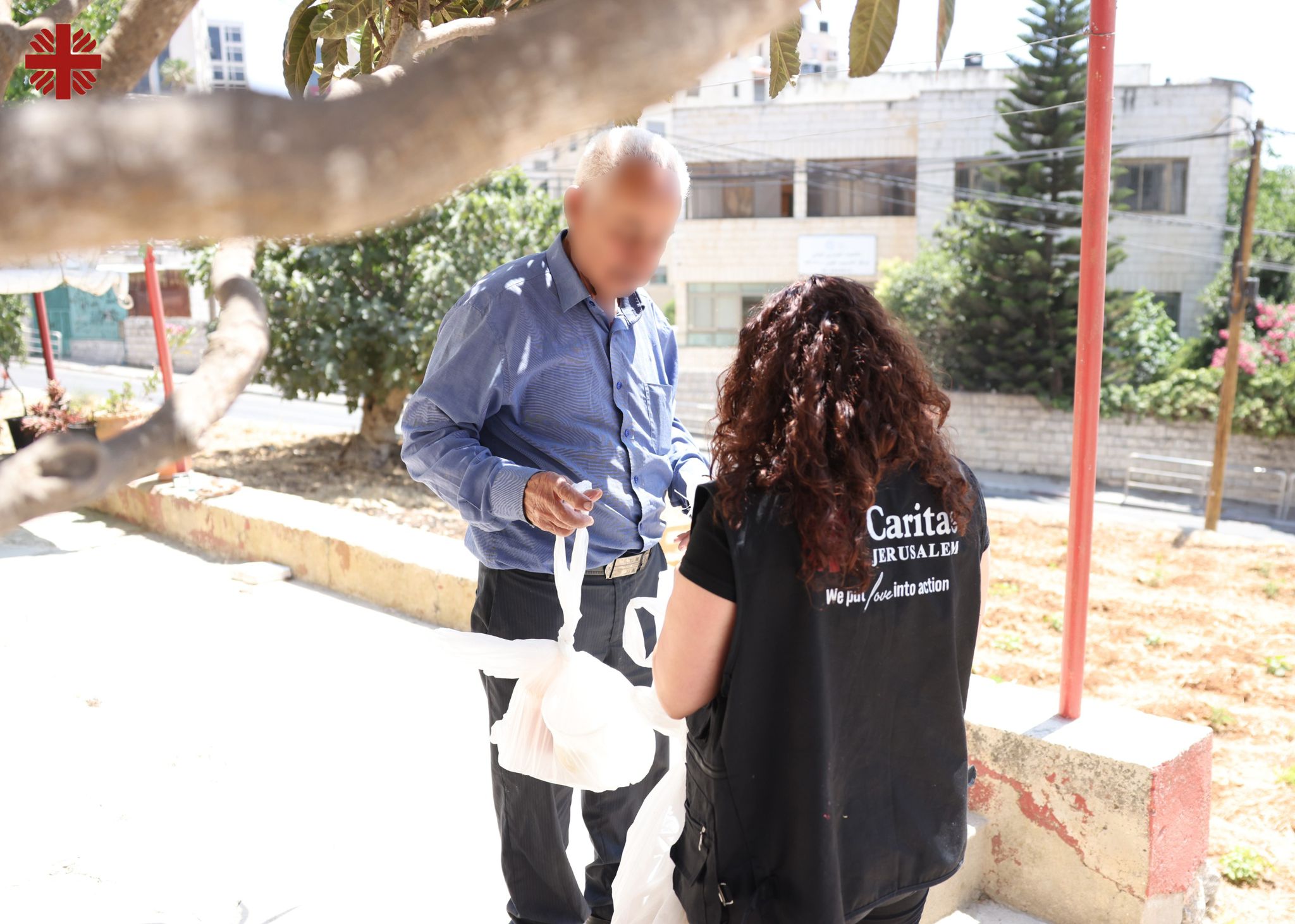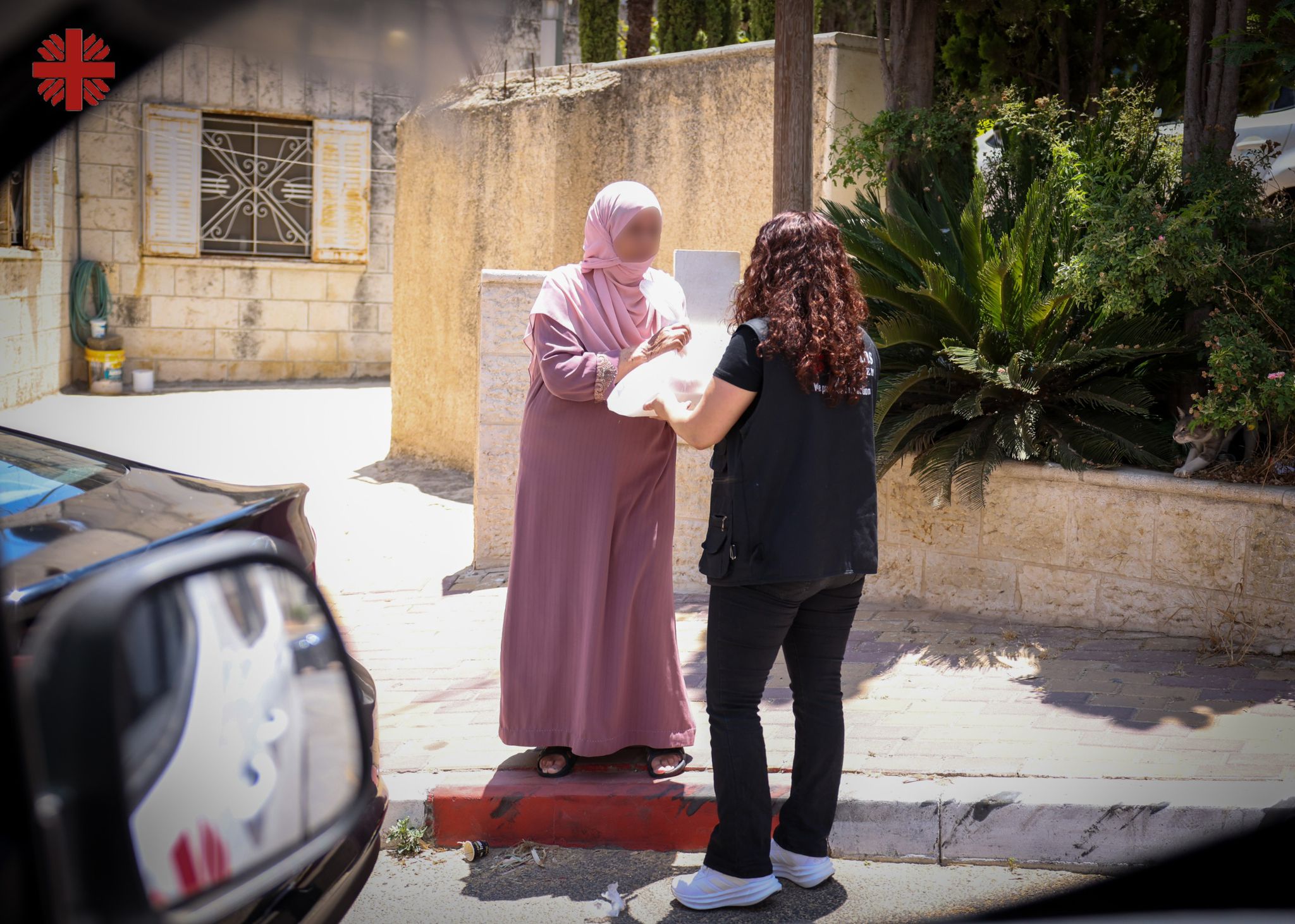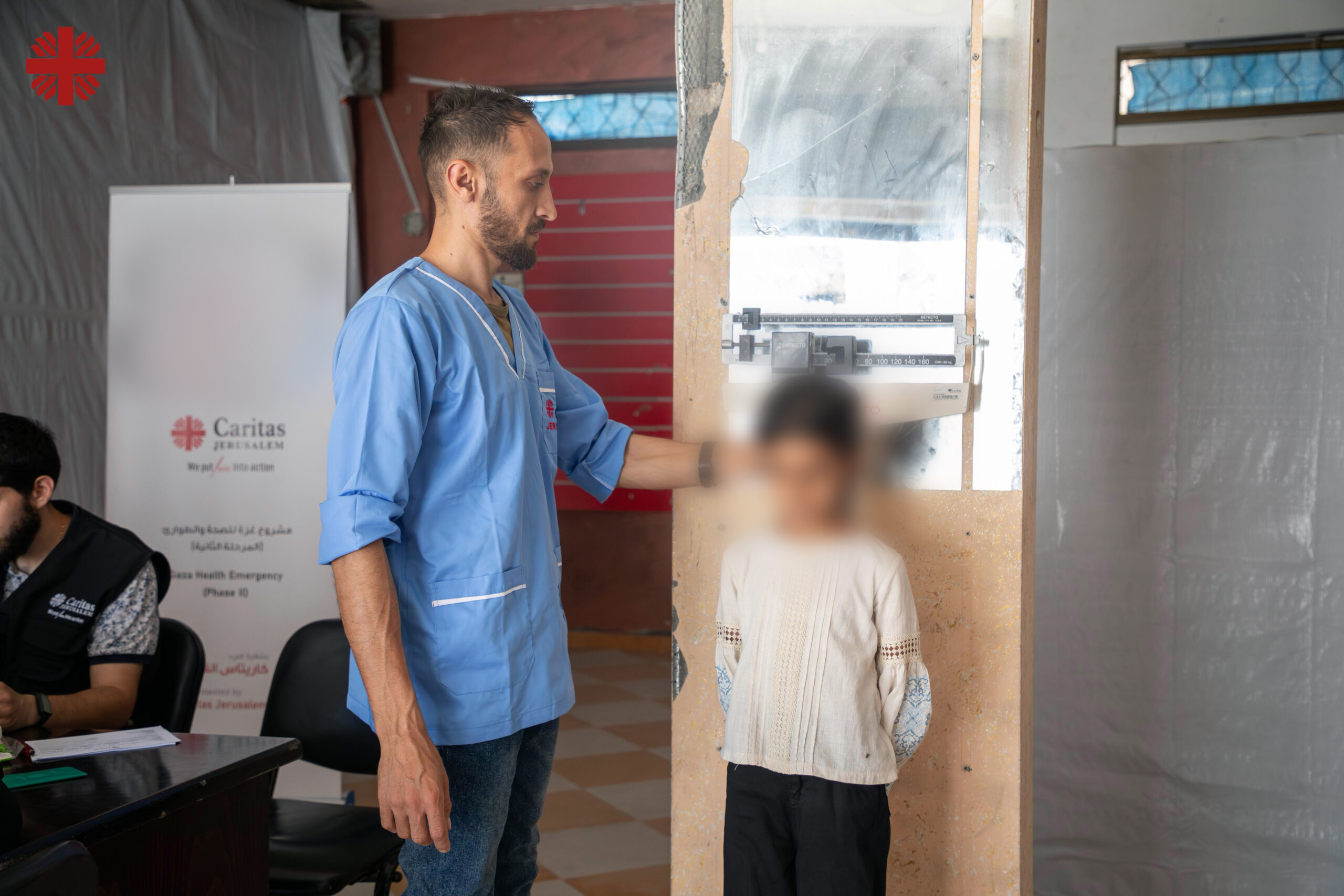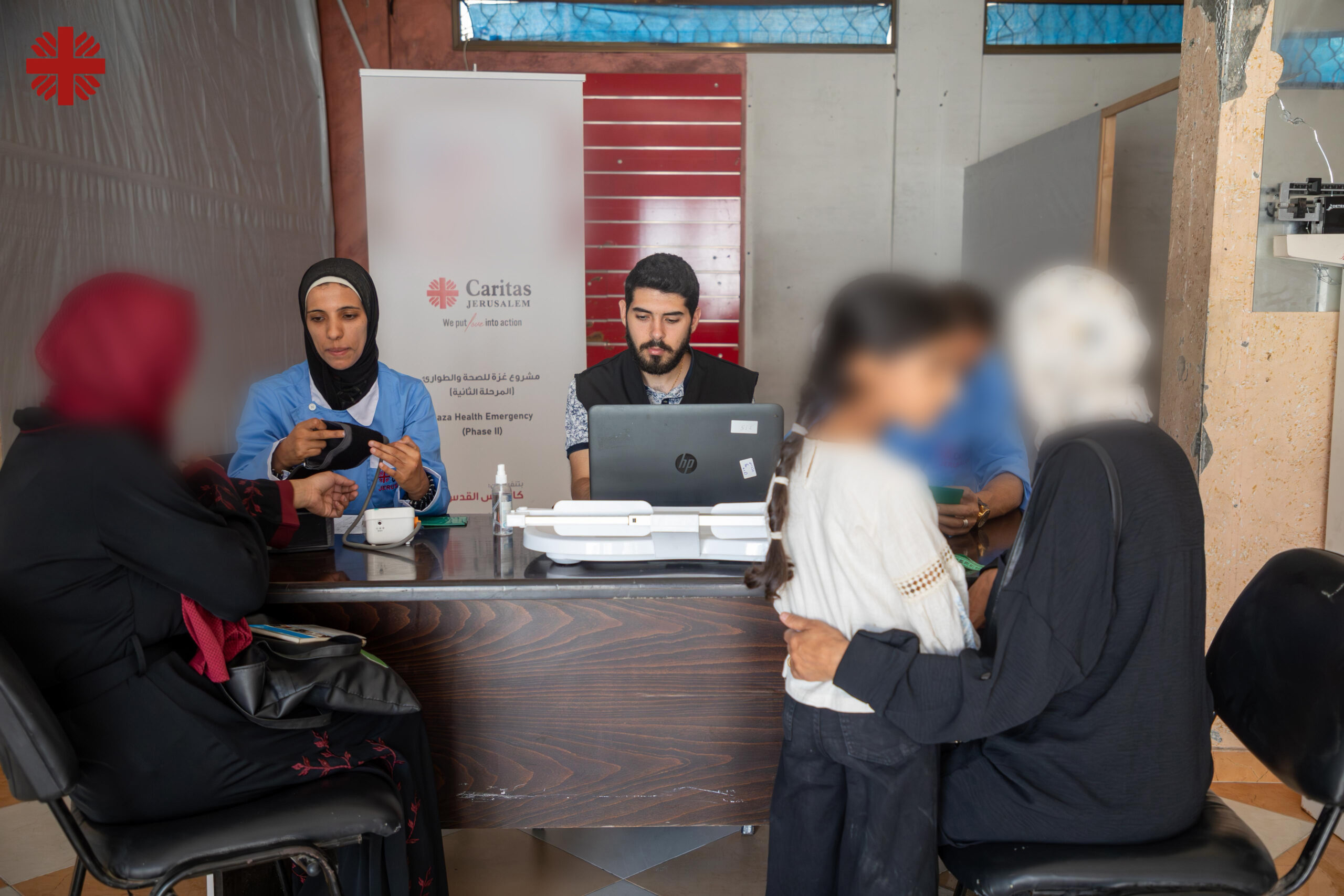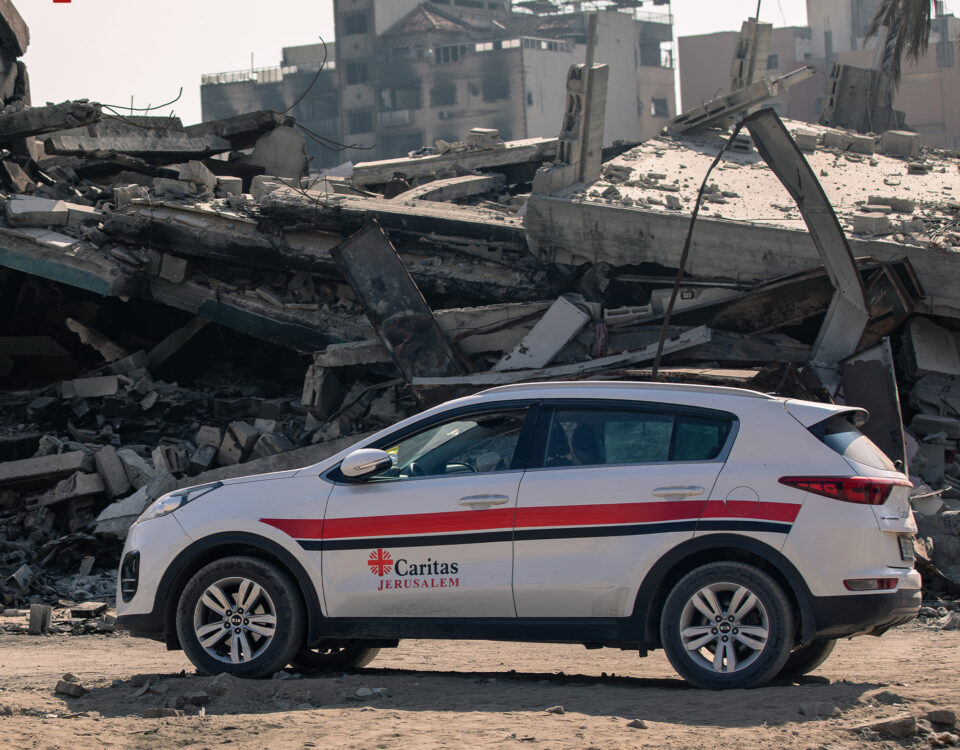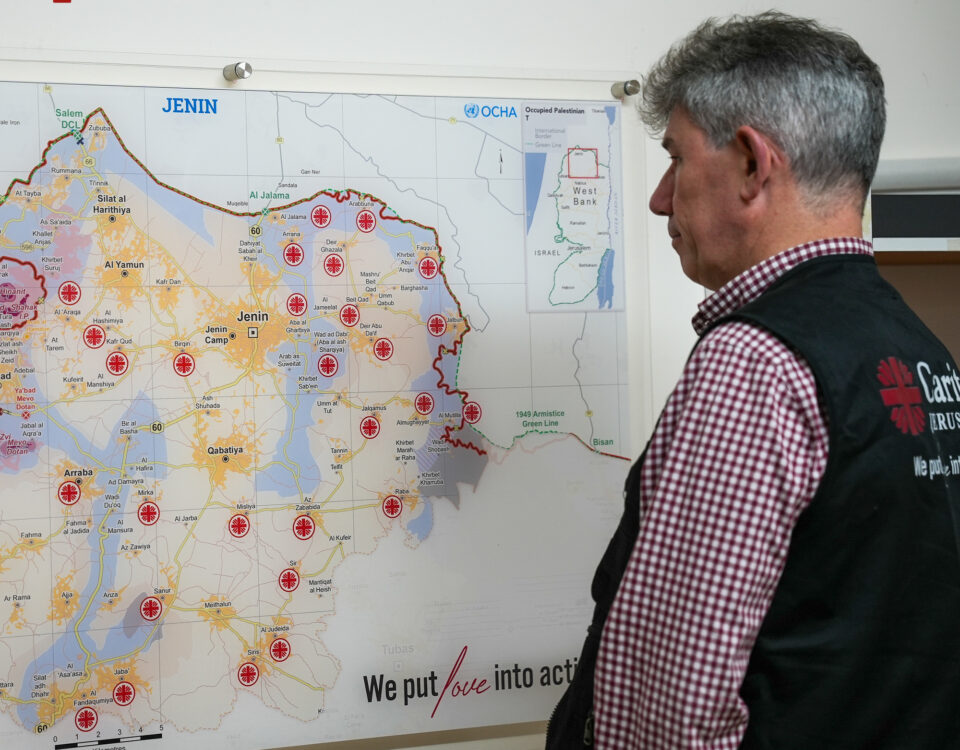
Pope Francis’ Last Initiative: Using the Popemobile to Help Children in Gaza
May 5, 2025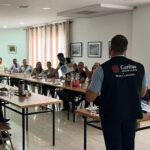
Caritas Jerusalem Participates in Steering Committee Meeting for AECID-Funded Development Project in Bethlehem
July 18, 202520 June 2025
To our esteemed partners and friends in mission,
We extend our heartfelt greetings and gratitude to all of you who continue to stand in solidarity with Caritas Jerusalem during these deeply troubling times. As many of you may have seen in recent news reports, a new and devastating phase of regional conflict began on Thursday evening, June 12, with the outbreak of war between the State of Israel and the Islamic Republic of Iran. This escalation has resulted in extensive missile exchanges, severe disruptions across the Holy Land, and a deteriorating humanitarian situation, particularly in Gaza.
We are writing to share a comprehensive update on the situation, the impact on our operations, and the extraordinary efforts of our staff across Jerusalem, the West Bank, and Gaza.
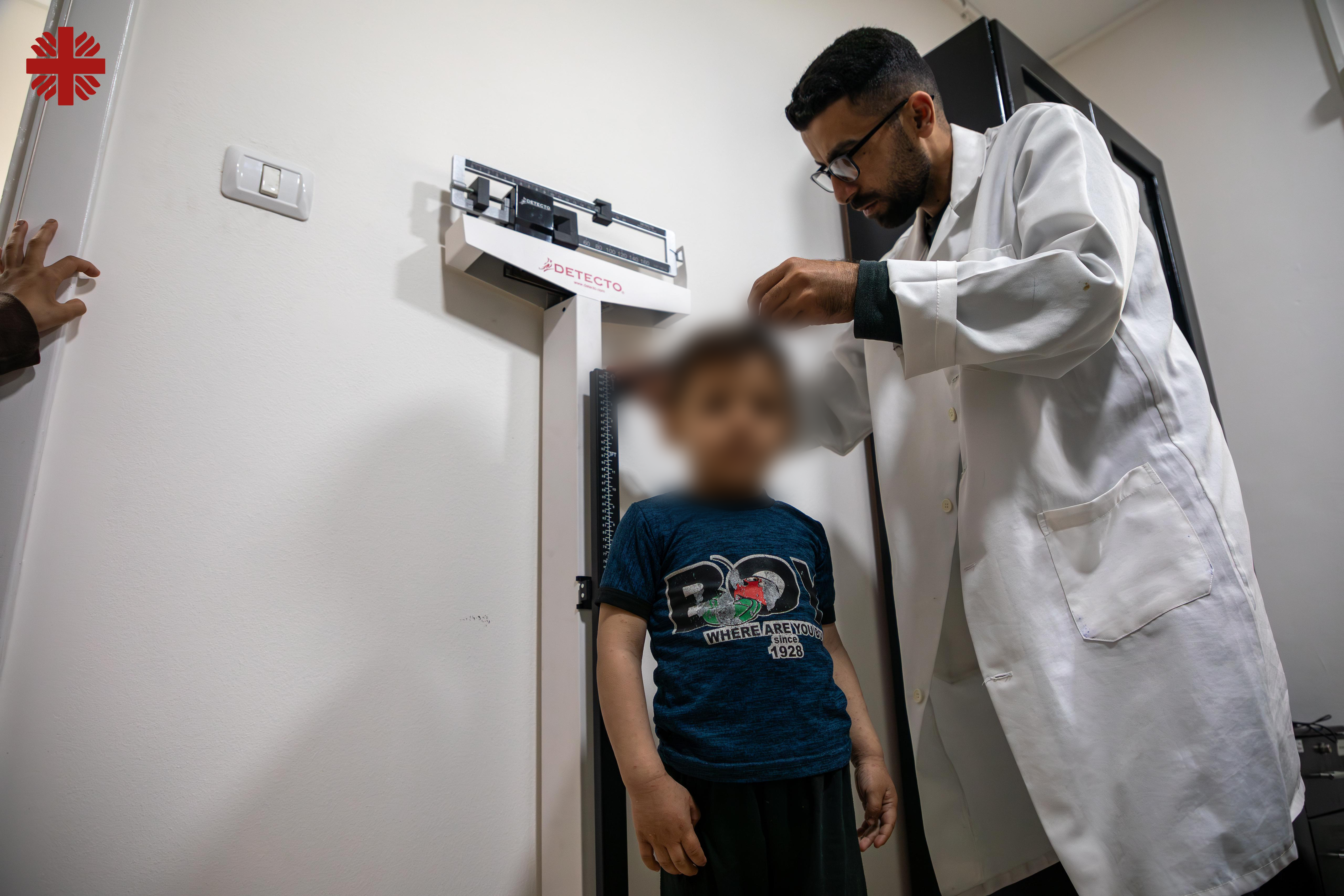
Regional Situation & Operational Impact
Following the outbreak of hostilities on June 12, Israeli missile strikes on Tehran were met with retaliatory ballistic and non-ballistic missile attacks by Iran. In the first days of the conflict, Jerusalem was heavily impacted, with multiple sirens and interceptions disrupting daily life. As the days progressed, northern Palestine has become the primary target of missile fire, though missile shrapnel continues to fall across Jerusalem, the West Bank, and the north, igniting fires and injuring civilians.
The Iron Dome defense system, though active, has not intercepted all missiles. Civilians are under constant threat, and the psychological toll on families, especially children, is immense.
Out of an abundance of caution, Caritas Jerusalem suspended all operations on Friday, June 14 in Jerusalem, and the West Bank to ensure the safety of our teams. and to assess the security risks in the country. The SMT proactively assessed the situation and decided to allow the healthcare services to resume in the West Bank and Gaza.
Despite these dangers, our teams showed remarkable resilience. On Saturday, June 15, our Taybeh Health Center and Gaza Medical Centre resumed partial operations without field activities. On Monday, we resumed work across all areas—Jerusalem, the West Bank, and Gaza—with reduced working hours (6 hours per day) due to nightly missile activity, disrupted sleep, and ongoing danger. Some staff are also working from home or remotely to ensure continuity of operations while prioritizing safety.
Staff underwent shelter drills, learning how to quickly move to "bunkers" (reinforced safe rooms) during missile alerts.
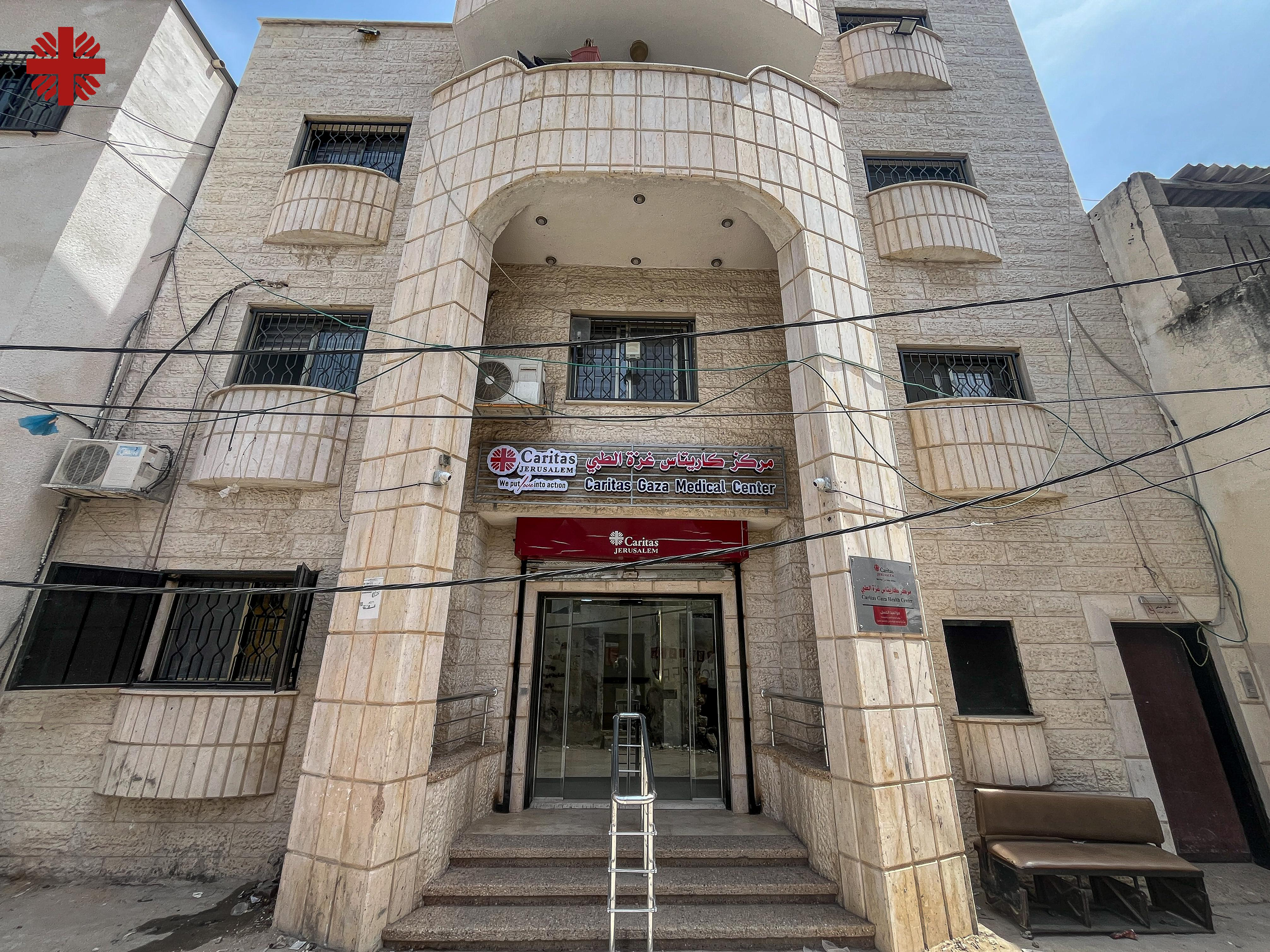
Gaza: A Humanitarian Catastrophe
As shared by Dr. Jihad Al Hissi, Caritas Jerusalem’s medical and health response consultant in Gaza, the situation in the Strip is beyond disastrous. This war has persisted for over a year and a half, resulting in the near-total destruction of civilian infrastructure. More than 90% of housing units have been damaged, and over one million people remain displaced, many having been forced to flee multiple times.
Our own staff and their families have experienced repeated displacement—from the north to the south and back again. Still, Caritas Jerusalem continues striving to operate health centers near displacement zones, doing all we can with the limited resources available.
Nutrition & Famine
The humanitarian crisis in Gaza has evolved into full-scale famine. Food has been effectively banned from entering, and only small amounts of flour have made it through. This flour, however, provides only empty calories. For over a year and a half, residents have had no access to meat, dairy, poultry, fruits, or vegetables.
100% of Gaza's population now suffers from nutritional deficiencies, a condition known as "hidden hunger" — where nutrient loss is not visible but deeply damaging. Immune systems have deteriorated drastically, and children and the elderly are especially vulnerable to infection and disease.
Environmental Collapse
The environment in Gaza is collapsing:
- Polluted water sources
- Completely destroyed sewage systems
- No access to electricity
These conditions make hygiene, and basic survival almost impossible.
Health System Collapse
Almost all hospitals have been completely destroyed. The few that remain, like the European Hospital, are non-operational or function only partially. Cancer patients are dying without care. Patients with glaucoma are going blind because eye drops are no longer available. Without medication, optic nerve pressure increases, leading to permanent blindness.
Patients with chronic illnesses (especially diabetes and hypertension) are now suffering from kidney failure, heart failure, and organ damage due to interrupted treatment and malnutrition. Over two-thirds of Gaza’s primary health centers have been destroyed, and only a few operate at reduced capacity.
At Caritas Jerusalem’s main health center — recently refurbished — we are treating over 200 patients daily, placing immense pressure on our limited medical supplies. We procure medication when possible from the WHO, ANERA, or the local market, though stock is unreliable and insufficient.
Mental Health and Disease Spread
The destruction of waste systems has led to widespread disease, including hepatitis, severe gastrointestinal illness, and respiratory infections. Psychological trauma is universal. Every person in Gaza suffers from some form of mental health disorder, anxiety, or PTSD. The combination of trauma, poor nutrition, and exposure to disease has made Gaza one of the most fragile public health zones in the world.
Dignity in Crisis: The Human Cost
Even when aid is allowed into Gaza, it is done in a cruel and degrading manner. Flour bags are thrown onto open ground, and civilians are forced to scramble for them under threat. Forty-five people have been killed and over 1,000 injured while attempting to collect flour. Some wait in the streets all night, only to be shot while trying to feed their families. Elderly people, children, and those with disabilities have no chance in this chaos.
Markets are empty of nutritional food, and when items like onions do appear, they cost as much as 70 shekels (~$20 USD). Even those with money cannot access it, as most banks have been bombed and are no longer operational.
What is unfolding in Gaza is unprecedented. Not in World War I. Not in World War II. Not in any known modern humanitarian crisis has such a scale of suffering been witnessed.
Among our staff, many have lost homes, friends, and loved ones. And yet, we persist.
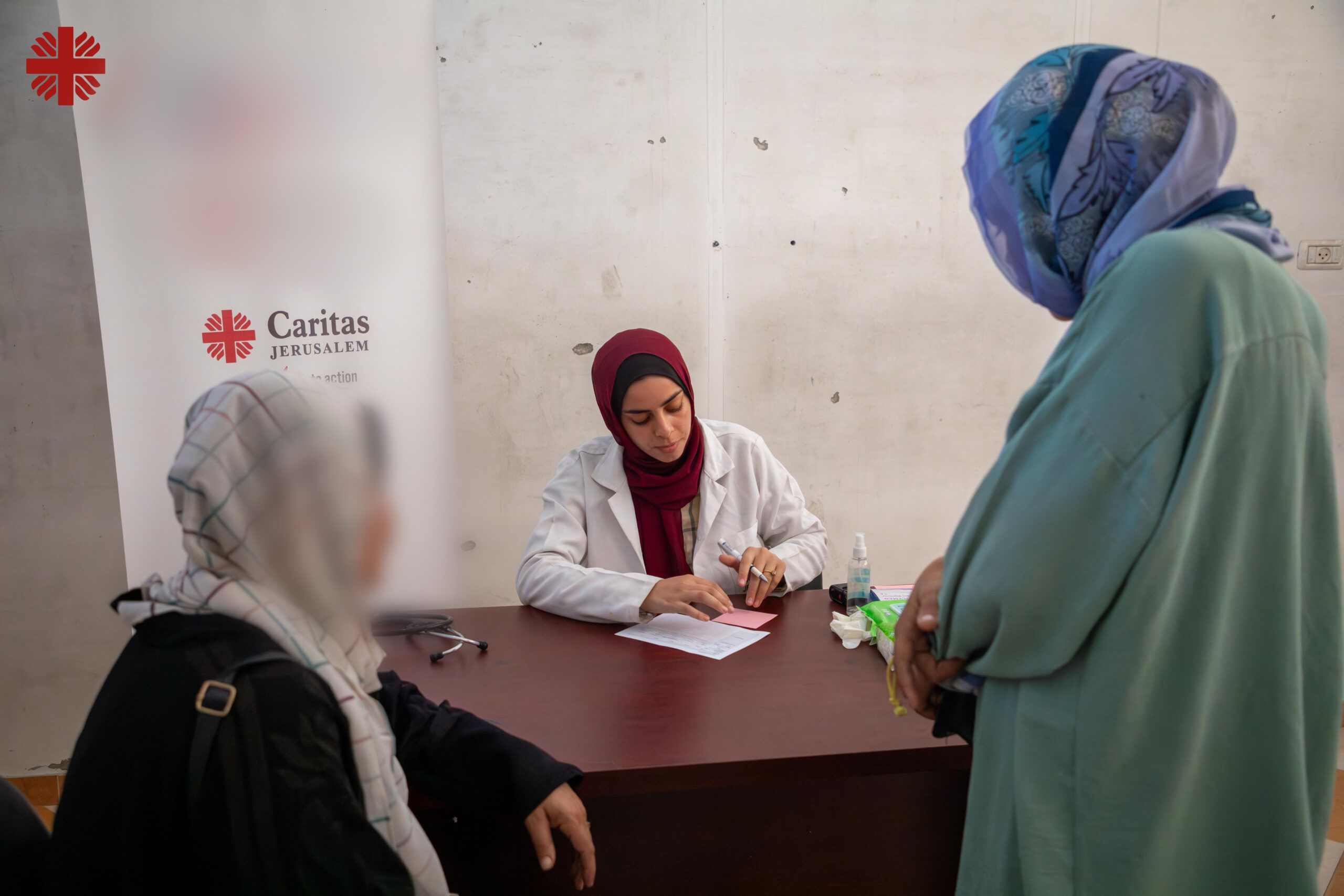
As Mr. Anton Asfar, our Secretary General, recently said:
“Yes, the situation is devastating. But at Caritas, we still carry hope. It is an inner hope born of deep faith — a hope sustained by your prayers, your continued messages of solidarity, and your love.”
Despite everything, our mission continues. In the West Bank, our youth volunteers are distributing hot meals to the elderly. In Gaza, our teams reopened the Al Zaitoun Emergency Clinic two days ago after a 10-day closure for safety.
In Jerusalem, our teams are trained, prepared, and committed — responding under fire, yet full of resolve. We will continue adapting, responding, and serving. Because we are Caritas. Because love never fails.
We ask for your continued prayers, advocacy, and support.
End.

